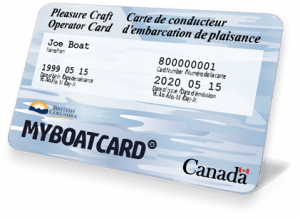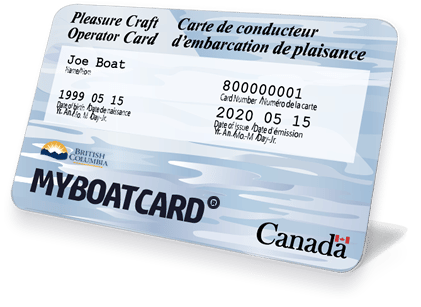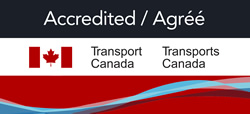BC Boating Laws and Regulations
Stay up-to-date on BC’s boating laws and regulations.
Introduction to Boating Laws and Regulations in BC
Boating is a popular recreational activity in British Columbia, and it is important for all boaters to be aware of and follow the laws and regulations that apply to the operation of vessels on the province’s waterways. These laws and regulations are in place to ensure the safety of all boaters and to protect the environment.
In BC, the Canada Shipping Act, 2001 is the principal legislation governing recreational boating . It is the responsibility of every boater to familiarize themselves with these laws and regulations and to ensure that they are operating their vessel safely and responsibly at all times.
Table of Contents
Can I operate a boat without a boating license in BC?
In Canada, all operators of recreational powered watercraft must carry proof of competency on board at all times, as set out in the Competency of Operators of Pleasure Craft Regulation (COPCRs). This includes all types of motorized boats, no matter their size or the horsepower of the engine (this includes small boats with electric motors). Failing to produce proof of competency to an enforcement officer in BC may result in a fine of $250.
Proof of competency can be any of the following:
- A Pleasure Craft Operator Card (PCOC);
- A certificate that states you have successfully completed a boating safety course in Canada prior to April 1, 1999;
- A completed and signed boat rental safety checklist (applicable only for the rental period); or
- A specified marine certificate or equivalency recognized by Transport Canada.
 If you have a Pleasure Craft Operator Card as proof of your competency, you must have the original card on board the vessel. Copies (other than a copy of your temporary PCOC) or electronic versions of the card will not be accepted as valid proof of competency.
If you have a Pleasure Craft Operator Card as proof of your competency, you must have the original card on board the vessel. Copies (other than a copy of your temporary PCOC) or electronic versions of the card will not be accepted as valid proof of competency.
If you lose or damage your PCOC you will need to order a replacement card before you can legally operate a recreational vessel again. Also, if you change your name or address you will need to contact your PCOC provider to update it on the Transport Canada database.
Note: Proof of competency is not required for pleasure crafts without a motor.
Is my BC boating license recognized in the US?
The BC boating license or Pleasure Craft Operator Card (PCOC) is recognized on a state by state basis in the United States. You will need to confirm with the relevant state before using your PCOC there. Canada will accept boating education cards issued by US states that meet NASBLA requirements as proof of competency.
Age and Operator Restrictions in British Columbia
In BC, the Transport Canada TP 14350E Vessel Operation Restriction Regulations (VORRs), set the age and horsepower restrictions that apply to all pleasure craft operators. These restrictions are outlined below.
- Operators under 12 years of age who are not directly supervised by a person 16 years of age or older may only operate a pleasure craft propelled by a motor of no more than 10 hp (7.5 kW).
- Operators that are 12, 13, 14 or 15 years of age who are not directly supervised by a certified person 16 years of age or older may only operate a pleasure craft propelled by a motor of no more than 40 hp (30 kW).
- Operators that are 16 years of age or older can operate any pleasure craft regardless of is horsepower.
- Only operators that are 16 years of age or older may operate a personal watercraft (PWC) without supervision.
Note: Regardless of age, all pleasure craft operators require proof of competency to be carried on board.
Drinking Laws and Boating BC
It is against the law to consume alcohol or drugs while operating a boat in BC. The same rules that apply to drinking and driving on land also apply to boating.
If you are caught operating a boat while under the influence of alcohol or drugs, you may be subject to fines starting at $230 and/or imprisonment. The only exception to this rule is if the boat has a sleeping area, cooking facilities, toilet, or is docked. In these cases, passengers may consume alcohol on the boat.
Fines:
$230 – if drinking alcohol on a boat that does not have a sleeping area, cooking facilities or toilet.
Operating a boat while impaired:
1st time offence: Minimum $1,000 fine, minimum 7 days’ imprisonment
2nd time offence: Minimum $1,000 fine, minimum 30 days’ imprisonment
3rd time offence: Minimum $1,000 fine, minimum 120 days’ imprisonment.
Careless Operation of a Boat in BC
It is illegal to operate a vessel carelessly in BC, without due care and attention, or without considering the impact on other people. This type of behavior is subject to fines under the Contraventions Act.
Examples of careless operation include:
- Jumping the waves of another vessel at an unreasonably close distance;
- Weaving through congested traffic at more than a slow speed;
- Swerving at the last possible moment (i.e. playing chicken ); and
- Operating a boat at a speed higher than necessary to maintain steerageway when near swimmers, non-powered vessels or cautionary buoys.
Dangerous Operation of a Boat in BC
Operating a vessel in a dangerous manner is not only unsafe; it is illegal. Under the Criminal Code of Canada, dangerous driving offences that result in bodily harm or death can result in imprisonment of 10 years or more in BC. Operating a boat at high speed near swimmers classifies as dangerous operation of a vessel.
Speed Limits while Boating in BC
The Canadian Collision Regulation (Rule 6) states that all boaters must operate at a safe speed at all times in order to avoid collision and/or adversely affecting any other vessel (i.e. dredging, towing, kayaking etc.).
A safe speed is a speed that allows the operator enough time to take proper and effective action to avoid a collision. The faster a boat travels, the greater the distance required for it to stop, and the less time available for the operator to react to a change in conditions. Be very careful when boating where visibility is poor, such as when entering or exiting a fog bank.
According to the Collision Regulations, to determine the safe speed for your vessel, you should take into account all of the following factors:
- Your ability to see ahead – slow is the only safe speed in fog, mist, rain and darkness;
- Current, wind, and water conditions;
- How quickly your boat can change direction;
- How many and what types of vessels are near you; and
- The presence of navigational hazards such as rocks and tree stumps.
If you already have your PCOC and want to brush up on your boating safety knowledge, why not checkout the free boating BC resources, which includes a free BC boating license practice test and study guide.
Boat Safety Equipment in BC
In British Columbia, the required safety equipment is determined by the vessel’s type and length.
If you are operating a boat in BC you must have certain items of equipment on board at all times. These items are necessary for the safety of the passengers and the vessel, and failing to have them on board could result in fines or other penalties. The required safety equipment in BC varies depending on the size and type of vessel.
Enforcement in BC
An enforcement officer, such as a member of the Royal Canadian Mounted Police, a provincial or municipal police force, or other local authority, has the authority to inspect your boat and monitor your boating activities to ensure that you are complying with applicable requirements.
These officers may also direct or prohibit vessel movement for the purpose of maintaining public safety. If you fail or refuse to stop and comply with requests from law enforcement, you may be subject to fines and/or imprisonment.
 Operators of vessels who are required to have a Pleasure Craft Operator Card (PCOC) must bring the card on board and make it available for inspection by an enforcement officer. Failing to do so can result in a fine.
Operators of vessels who are required to have a Pleasure Craft Operator Card (PCOC) must bring the card on board and make it available for inspection by an enforcement officer. Failing to do so can result in a fine.
British Columbia Boating Fines
Some examples of boating fines in BC include:
- $250 – Not having the required PCOC or proof of competency on board
- $250 – Boating underage
- $250 – Violating horsepower restrictions
- $350 – Careless boating
- $200 – Missing safety equipment
- $500 – Unsafe boating
- $200 – Per missing lifejacket/pdf onboard
- $250 – No spotter or seating for the passenger in tow
BC Boating
TRY IT. FREE.

Transport Canada approved Boater Safety Course is free.
Take the course in your own time and risk free.
Other providers try to get you to pay upfront before you even have a chance to try out their course!

OVER
2,000,000
CERTIFIED
CANADIANS

TRANSPORT CANADA.
ACCREDITED.
MyBoatCard.com® is accredited by Transport Canada to deliver boating safety courses and administer tests for the issuance of Pleasure Craft Operator Cards, including replacement cards, under the Competency of Operators of Pleasure Craft Regulations.
